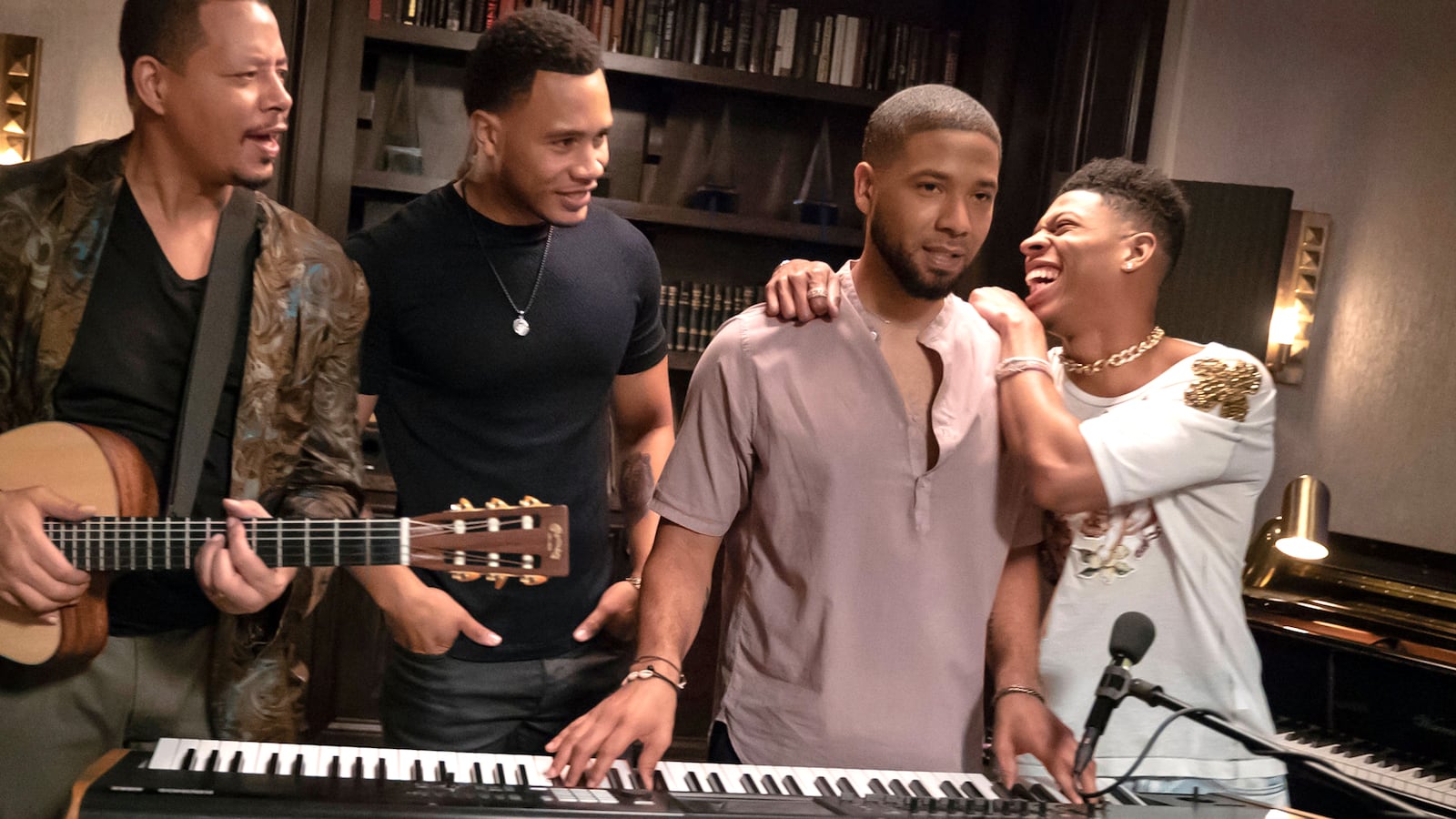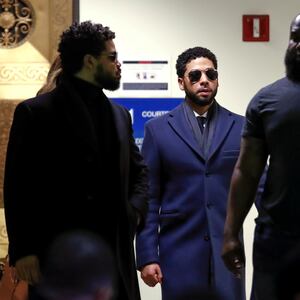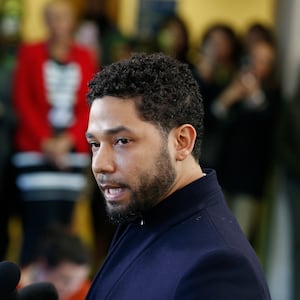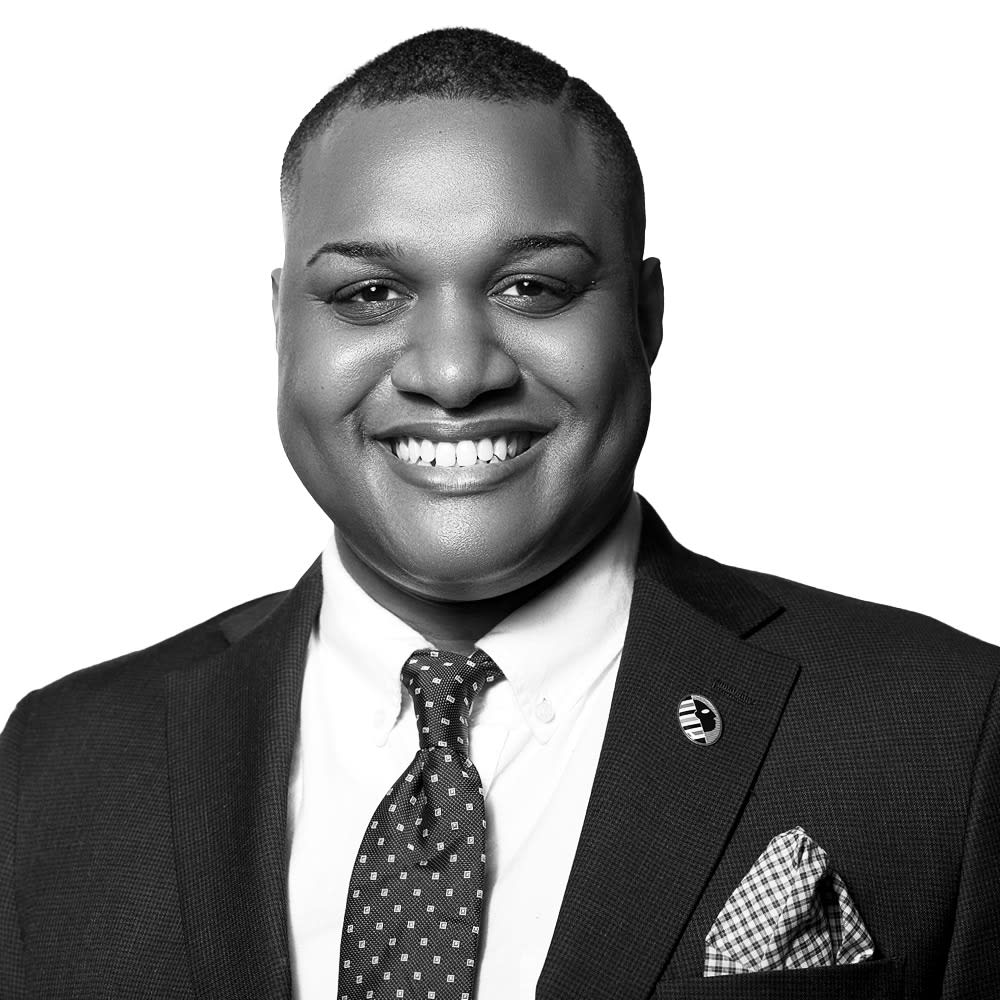The trial of Jussie Smollett, and the crime that led to it—whether that crime was an attack on him, as he says, or a hoax he ginned up for media attention, as prosecutors are saying–feels an awful lot like an episode of Empire, from what turned out to be his last season on the show.
In that season, the character he played, Jamal Lyon, was being betrayed by a con artist who was supposed to be loving him but was betraying him behind closed doors. Lyon’s using lots of drugs while also going through rehab and feeling washed up and, overall, seems an awful lot like the actor who was playing him from what has come out at the trial and over the three years since Smollett first reported his attack.
The defense wants the jurors to see Jussie Smollett—a successful actor from a wealthy family—as a dumb, naive, and lovestruck kid (he was in his mid-30s) who fell into a bad trap set by wicked men set on evil. And the prosecution wants jurors to see Jussie Smollett as a mastermind who plotted his own hoax for celebrity and attention. Both seem absurd to me, but on some level, the jurors will have to decide which picture seems closer to the truth.
“This case is a crazy case,” Defense Attorney Nenye Uche said in court on Thursday as one of the most salacious celebrity trials ever neared its end with the defense and prosecution delivering closing arguments that will help Chicago jurors determine the fate of actor Jussie Smollett, who is charged with paying the Osundairo brothers $3,500 in 2019 to stage a fake hate crime against him.
Special Prosecutor Dan Webb then gave the trial’s closing word, saying that Smollett was not only guilty of lying to the police but “beyond that it’s just plain wrong to just outright denigrate” something as serious as a hate crime. He accused Smollett of having “tailored his testimony” so that he didn’t deny surveillance footage and text messages in evidence, but lied about their meaning and everything else.
“If I say it was whites, that makes it more real,” Webb said, to make the argument that Smollett used race as a way to gain attention for the fake crime that he’d staged with the brothers. “It gives it more credibility.”
Webb questioned why the actor initially refused to turn over his cell phone and other evidence to the authorities—something he said no real crime victim would do.
“The last thing Mr. Smollett wanted was for police to reach out to (Abimbola) Osundairo,” Webb argued, as he claimed the actor was trying to keep cops from seeing that he had been in communication with one of the brothers.
“He didn’t want them looking at that rope for DNA because what if Bola or Ola’s DNA is on there?” Webb continued, also pointing out with surveillance footage how the rope used in the alleged attack was loosely around Smollett’s neck just afterward—but was closer to his throat by the time the police arrived.
“His so-called explanation for jimmying with the rope got blown out of the courtroom yesterday,” Webb said, pouncing on the detail. “If he was innocent, the real victim of a hate crime, why would he be jimmying and monkeying around with the rope? He made it look worse, and he got caught.”
As for the intended workout with the actor and the brothers that never happened but that Smollett claims explains why the three of them had repeatedly circled the scene of the alleged attack days prior, “that workout story was a bunch of hooey, not true at all,” Webb told the jurors.
He closed his case with a reminder of how Smollett had texted “support” to Abimbola Osundairo, with whom the actor claimed during his testimony to have had a sexual relationship, while they were in police custody two weeks after his alleged attack.
“He wants the brothers to think we can keep our mouths shut. Mr. Smollett is gonna keep his mouth shut and no one will ever know what happened,” Webb said. “He’s hoping they don’t cooperate.”
That was in response to Defense Attorney Nenye Uche arguing that Smollett’s privacy concerns around turning in evidence were legitimate and that it was “nonsense” that the authorities needed the actor’s DNA to test the rope.
“The entire prosecution case including the foundation of their case is built like a house of cards,” Uche told jurors. “We all know what happens to a house of cards when you apply a little pressure. It crumbles.”
Uche then went into a series of linear punches against the prosecution where he focused less on why the Osundairo brothers would have attacked Smollett than on why Smollett wouldn’t have been part of a hoax.
"Not only does Jussie have a lack of motive, he has anti-motive," Uche argued, pointing out how the actor had major upcoming scenes for Empire and a music video to shoot. “He’s dumb enough to go into Obama’s city and pretend there’s Trump supporters running around with MAGA hats? Give me a break.”
Uche called the brothers “sophisticated liars and criminals… the worst because they have a brotherly culture of lying, a brotherly language of lying, and a culture of criminality." Now, he said, the two are playing “the blame-the-victim scam. It’s bigger than the African Prince scam. Don’t fall for it."
Returning to Smollett's testimony in which he claimed he'd had a sexual relationship with Abimbola, Uche begs the question of whether the brother “was pretending to be Jussie's friend and pretending to be gay, masturbating with Jussie in a bathhouse? I really don’t know.”
As to Smollett’s $3,500 check to the brothers, "it's not unusual” said Uche, noting Smollett had written similar checks to others, including his publicist Pam Sharp. “Is Pam Sharp planning a hoax with Mr. Smollett?” Uche asked, and then answered himself: “Ridiculous.”
As Uche began to wrap up, he talked about alleged bystanders and others who didn’t testify during the trial, including someone on the Empire set he said had been previously attacked by one of the brothers, a bystander who saw a suspicious-looking white guy in the area with a rope not too long after the incident, and a cab driver who allegedly told police they thought they saw one of the brothers texting in the cab, which would conflict with the prosecution's theory that the brothers were without their cellphones during the alleged attack. Uche also suggested that there could have been a possible third person involved in the attack, and argued that the police didn’t follow up on these details.
“You cannot convict a person when there’s doubts," he said.
This is true, but the question now is whether the jurors have such doubts following a trial that culminated a nearly three-year saga involving a once promising Black gay entertainer and capturing the messy, violent ways that celebrity, identity, and our polarizing political climate can all collide now.



